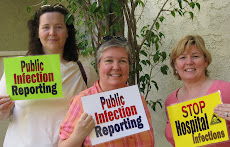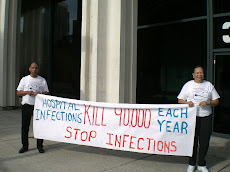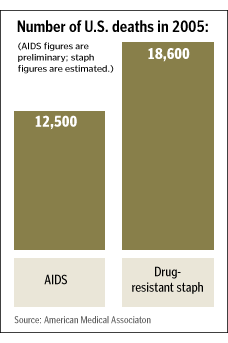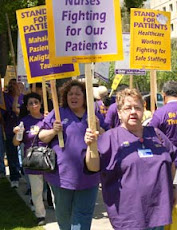Patrick Malone
Posted: October 29, 2009 04:04 PM
The recent news about the two Northwest Airlines pilots whose licenses were revoked, less than a week after they let their plane wander 150 miles off course, raises the question: Where are the firing offenses in medicine?
The pilots injured no passengers, and the event didn't even qualify as a "near miss." But because they egregiously violated safety rules by working on their flight schedules on a laptop in the cockpit, the aviation authorities did not hesitate to pull their licenses.
In the medical industry, by contrast, it is well known that a doctor will lose his or her license for only flagrant patterns of drug or alcohol abuse or other criminal behavior, with a trail of dead and injured patients usually lasting years before the practitioner is finally put out of business.
Medicine's big safety emphasis in recent years has been to create a "no blame" culture that encourages reporting of errors, injuries and "near-misses" by promises of confidentiality and non-punitive action. The idea has been to bring systemic problems out into the open so they can be corrected by implementing "systems" changes, such as checklists to make sure all appropriate steps are taken to prevent infections when inserting catheters into blood vessels.
But what about a doctor who repeatedly puts patients in jeopardy, in small or big ways, by ignoring the rules? Many don't wash their hands routinely when they enter a patient's hospital room, and deadly infections sometimes get spread from patient to patient. Others don't "sign out" their patients at the end of a shift by a person-to-person encounter with the provider taking over.
Some surgeons still won't follow the now routine practice of "signing the site" to prevent wrong-site surgery. If the surgeon is a prominent "feeder" of patients to the hospital, such transgressions can easily be overlooked by administrators who don't want to lose the business. That helps explain why an estimated 4,000 wrong-site surgeries still are performed every year in the United States, more than a decade after the "sign your site" campaign by orthopedic and other surgical specialties.
The good news is that medical safety leaders are starting to call for accountability for rules violations. Dr. Robert Wachter of UC-San Francisco and Dr. Peter Pronovost of Johns Hopkins recently wrote about this in the New England Journal of Medicine. Comparing medicine to aviation (the article was published before the Northwest Airlines incident), they noted: "Every safe industry has transgressions that are firing offenses."
They proposed a short list of offenses in the hospital that should call for suspension of the doctor's practice for one or two weeks: failing to perform hand hygiene, skipping the sign-over to a new provider at the end of a shift, not marking the surgical site, and failing to use a checklist at the start of surgery to make sure everyone in the operating room knows the special needs of the patient. These penalties, they suggested, should only apply after the doctor has failed to respond to an initial warning and counseling.
These modest, tentative steps forward are proposed by the authors to their colleagues as a way of fending off intrusive government regulation. But they also say: "The main reason to find the right balance between 'no blame' and individual accountability is that doing so will save lives."
Amen to that.
Patrick Malone
Attorney and Author of "The Life You Save"
Subscribe to:
Post Comments (Atom)









No comments:
Post a Comment